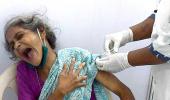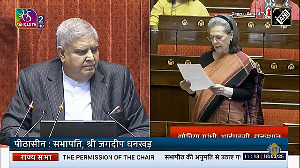With an IIT-Kanpur study predicting a fourth wave of COVID-19 in July this year, the government on Thursday said it looks at such studies with due respect but it is yet to examine whether this particular report has a scientific worth or not.

Addressing a press conference in New Delhi, NITI Aayog Member (Health) V K Paul said that the IIT Kanpur study is a "valuable input" produced by eminent people.
"...it has been our endeavour to look at science of the pandemic, its epidemiology, trend and virology. All projections are based on data and assumptions and we have seen divergent estimates from time to time. They are sometimes so divergent that decisions based on just a set of projections will be very unsafe for the society. The government looks at these estimates with due respect because these are scientific works produced by eminent people," Paul said.
He said the government's approach is to be completely prepared for the unpredictable virus but whether the IIT study has a scientific worth or not is yet to be examined.
"We saw the news item and found out that this project is carried out by a group in a particular institution. We would like to see it published in a peer reviewed journal. We should be carefully watching the assumption that has been used. Only on a single estimate or projection, one is not taking any decision of significance. We value it as an input. Whether it has a scientific worth and mathematical underpinning will be examined," Paul said.
"Our approach is to be absolutely prepared for this unpredictable virus and at the same time carry on with our work and activities in a responsible way. We are sharing on a regular basis with you our understanding and the dynamics of the pandemic and how the nation is responding to it," he added.
A modelling study by researchers at the Indian Institute of Technology-Kanpur suggested that the fourth wave of the COVID-19 pandemic in India may start around June 22 and peak from mid to late August.
The yet-to-be peer-reviewed study, recently posted on the preprint repository MedRxiv, used a statistical model to make the prediction, finding that the possible new wave will last for four months.
The study led by Sabara Parshad Rajeshbhai, Subhra Sankar Dhar, and Shalabh of IIT Kanpur's Department of Mathematics and Statistics shows that the severity of the fourth wave will depend on the emergence of a possible new coronavirus variant, and vaccination status across the country.











 © 2025
© 2025